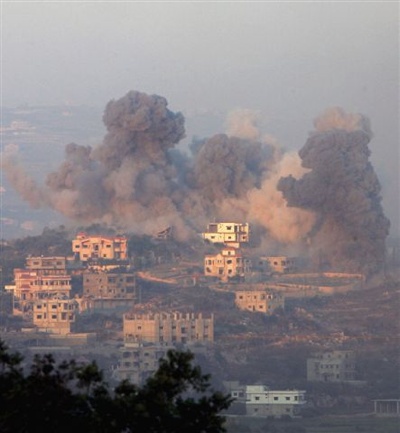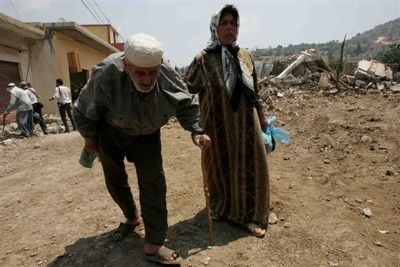She refers to a report by Lebanon’s state-run Council for Development and Reconstruction (CDR) which argues that today’s losses are much more substantial then those the country suffered during its civil war as the Israeli air-force has systematically targeted Lebanon’s infrastructure, while the civil war was characterized by small-scale wars between different groups. CDR puts losses at $2.5bn, while damages to infrastructure have reached $785mn, according to CDR.
I’m also translating some paragraphs of Bergmann’s article:
When Siniora became Prime Minister in June 2005, public debt stood at $36bn and the trade deficit reached $2bn. Lebanon’s new government realized that reform was inevitable. A plan “revival of the economy� was drafted. It aimed at privatizing the state’s power station and its telecom, at raising taxes and at increasing control over funds – more precisely: the fight against corruption. With the beginning of the war, the plan was without further ado dubbed “plan for reconstruction�. Translated, this meant that corruption in trade in industry will flourish again, Lebanon’s former Minister of Finance Georges Corm recently said.
When in fall 2001 Arab capital feared being frozen in the US, Lebanon became the favourite place for Arab financiers. Now, however, Golf Arabs are withdrawing their money discreetly but very quickly. To where will they transfer their capital which has been increased by the explosion of oil prices? One destination are “stable� and economically open countries of the region such as Egypt, Morocco and Turkey, financial experts say. Is this arguably the reason, why those countries are reluctant in criticising Israel’s campaign?



